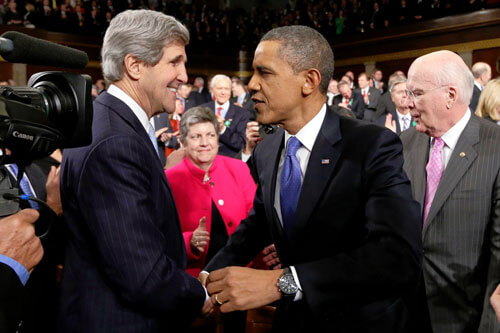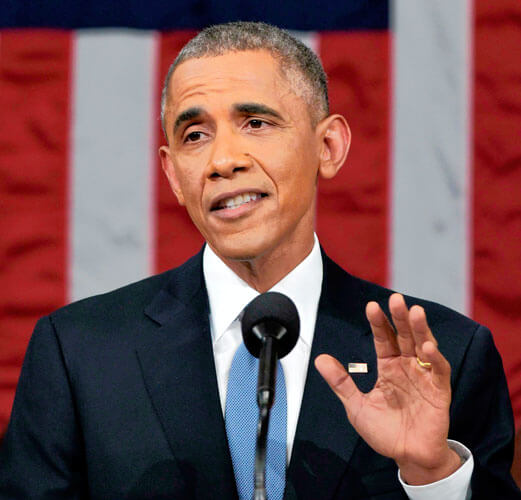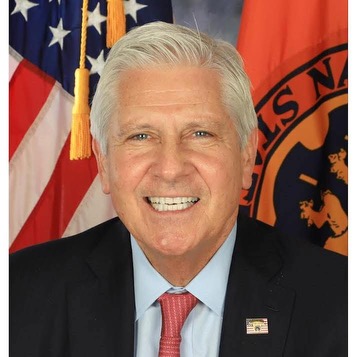Highlights of the economic and other proposals President Barack Obama called for in his State of the Union address:
JOBS:
Partner with businesses and communities to invest in American-made technologies through a network of Manufacturing Innovation Institutes, three of which Obama said he would create by executive order while asking Congress to create 15 more. Eliminate tax breaks that encourage companies to move jobs outside the U.S., and rewrite the tax code.
HOUSING:
Spend $15 billion to help communities awash in foreclosed and vacant properties rebuild while creating construction jobs.
MINIMUM WAGE:
Increase the federal minimum wage, currently $7.25 an hour, to $9 in stages by the end of 2015, and allow for automatic increases to keep pace with inflation. Republican presidential candidate Mitt Romney supported the idea of indexing the minimum wage to inflation.
GUN CONTROL:
Ban assault weapons and ammunition magazines that can hold more than 10 rounds, require background checks for all firearms purchases and increase access to mental health services.
AFGHANISTAN:
Withdraw 34,000 U.S. military forces, just over half the 66,000 troops still there, within a year.
IMMIGRATION:
Continue to tighten the border, crack down on employers who knowingly hire illegal immigrants, establish a pathway to citizenship for the estimated 11 million immigrants in the country, and streamline the immigration system for families, workers and businesses.
WOMEN:
Renew the Violence Against Women Act to help protect victims of domestic violence and help law enforcement investigate and prosecute sexual assaults. The Senate voted Tuesday to renew the law; Obama called on the House to quickly send him a bill.
EARLY CHILDHOOD EDUCATION:
Work with states to provide access to a high-quality preschool for all 4-year-olds from families with low or moderate incomes.
TRADE:
Begin talks on a comprehensive trade agreement with the European Union to promote the exchange of goods across the Atlantic. Complete negotiations on a Trans-Pacific Partnership.
FEDERAL BUDGET:
Continue to work toward the goal of $4 trillion in deficit reduction and stabilizing the debt as a percentage of the economy, both over 10 years.
INFRASTRUCTURE:
Spend $50 billion on a “Fix It First” program for urgent repairs to roads, bridges and railways, and attract private capital to upgrade ports, pipelines and schools.
ENERGY-CLIMATE CHANGE:
Make permanent and refundable a tax credit for renewable energy to help double the production from wind, solar and geothermal sources by 2020. Help states cut energy waste and increase efficiency through a competitive grant program modeled after a similar program for education. Direct Cabinet secretaries to identify additional executive steps to deal with climate change. Urges Congress to write legislation giving polluters market-based incentives to reduce the gas emissions blamed for global warming.
EDUCATION:
Launch a competition to help redesign and modernize high schools, and create a corps of 10,000 of the nation’s brightest science and math teachers to improve instruction in the fields of science, technology, engineering and math. Introduce a new “College Scorecard” to help parents and students compare schools based on where they can get “the most bang” for their “educational buck.”
CYBERSECURITY:
Signed executive order Tuesday to increase information-sharing and develop standards to protect national security, jobs and privacy. Calls on Congress to pass legislation to help the government secure its computer networks and deter cyberattacks.
VOTING:
Create a commission to help improve the voting experience, a response to widespread complaints about lengthy waits, requirements to show photo ID before voting and shortened periods for early voting.
Copyright 2013 The Associated Press.























